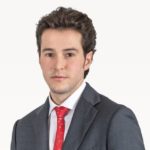Real estate asset swap
Tax-neutral restructuring specific to pension funds

Aurélien Barakat
(Translated by DeepL)
In a ruling 2C_380/2021 of February 28, 2022, intended for publication, the Swiss Federal Supreme Court examines a case involving the transfer of several real estate assets from an occupational pension scheme to an investment foundation whose investors are exclusively pension funds.
A pension fund owns a large number of properties, mainly in the canton of Zurich. It wishes to transfer its real estate holdings to an investment foundation – also dedicated to occupational benefits – in exchange for participation rights in the foundation’s assets. The transaction is structured as a transfer of assets (Art. 98 of the Swiss Federal Law on Assets and Liabilities) at market value.
This transfer is intended to enable the pension fund to achieve greater efficiency, optimize its investments operationally and ultimately improve returns. It also enables the pension fund to reduce its risk by broadening its range of investments. In practice, this is known as a “real estate asset swap” or “Immobilien Asset Swap”.
In the opinion of the Zurich tax authorities, the transfer of real estate assets to Zurich totalling around CHF 18 million justifies the levying of real estate gains tax. Nevertheless, the pension fund went ahead and brought the case before the Steuerrekursgericht, which ruled in its favor, prompting the Zurich tax authorities to bring the case unsuccessfully before the Verwaltungsgericht and then the Federal Supreme Court.
The question to be decided by the Federal Supreme Court is whether a pension fund can restructure in a tax-neutral manner – in particular, to obtain deferral of real estate gains tax within the meaning of art. 12 para. 4 lit. a LHID – in the context of an asset swap transaction, on the basis of art. 80 para. 4 LPP, independently of a tax-neutral restructuring case within the meaning of art. 24 para. 3 and 3quater LHID.
In its analysis, the Swiss Federal Supreme Court addresses the following points in particular :
Art. 24 al. 3 and 3quater LHID are not monopolistic in the list of operations that can be carried out in a tax-neutral manner.
Pension funds benefit from special tax advantages if their funds are used exclusively for pension purposes (art. 80 para. 2 BVG). This means that, for a transaction to be tax-neutral, the assets transferred by the pension fund must continue to be irrevocably allocated to the insured’s pension scheme. This requirement is met in the present case, since the investment foundation is also exclusively dedicated to occupational benefits.
Art. 80 para. 4 sentence 2 BVG/LPP stipulates that “[t]he profits resulting from the merger or division of pension funds are not taxable”. The term “profits” includes real estate profits. The notion of division, however, must be interpreted. For the judges at Mon-Repos, it refers to the transfer of assets to another entity, with the transfer of patrimonial or corporate rights to this other entity (in the spirit of art. 29 let. b LFus). This condition is met in this case, as the pension fund holds rights in the investment foundation following the transaction.
A division transaction within the meaning of art. 80 para. 4 BVG/LPP must not result in a simple sale and reinvestment of the proceeds in other investment assets. After the transfer, the transferred assets must continue to indirectly serve the same group of insured. In other words, a pension fund that simply sells its real estate to another pension fund or to a third party cannot benefit from the division rules.
Since all the conditions laid down in art. 80 para. 4 BVG/LPP are met in this case, the Federal Court confirms the Zurich ruling that the real estate gain must be deferred within the meaning of art. 12 para. 4 lit. a LHID.
In our view, this ruling is to be welcomed since, as the Federal Court emphasized, the legislator’s intention was not to make pension fund restructuring operations – such as asset swaps – more difficult because of the tax consequences. The ruling calls for a number of comments :
The tax deferral mechanism for real estate gains within the meaning of art. 12 para. 4 lit. a LHID is a deferral in the strict sense (not a step-up mechanism).
The Federal Court explicitly applies the deferral rules specific to real estate gains tax (monist regime) provided for in art. 12 al. 4 LHID and not the rules of the dualistic regime. This could call into question Geneva’s cantonal practice of subjecting real estate gains realized by pension funds to income tax (dual system).
What about transfer duties ? This point is left open by the Federal Court, which mentions it without going into detail. In our opinion, such duties should not be levied in a recognized case of division. While it is true that art. 103 LFus refers only to art. 8 para. 3 and 4, and art. 24 para. 3 and 3quater LHID and not explicitly to art. 80 para. 4 LPP, this is also the case for art. 12 para. 4 lit. a LHID. However, in the judgment under review, the Federal Court interprets the latter provision as referring to all transactions that can be carried out in a tax-neutral manner, including the cases provided for under art. 80 para. 4 BVG.
Finally, the Federal Supreme Court mentions that a division may be partial, without specifying any additional conditions. This suggests that a pension fund could transfer only part of its real estate holdings to an investment foundation on a tax-neutral basis, while retaining other investments. It would have been desirable for the Federal Court to have clarified whether this transfer had to represent a minimum proportion of the pension fund’s assets, and we will have to keep a close eye on this point.



